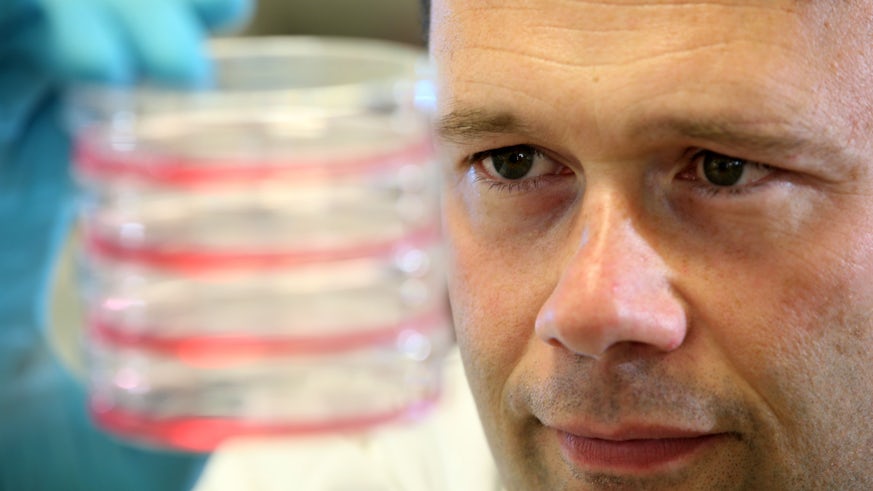Cancer prognosis and the TEX19 gene
9 May 2017

A stem cell-specific gene usually found in the testis can influence cancer cell proliferation and prognosis in a range of different cancers.
This is the finding of a team of scientists from the Cardiff’s European Cancer Stem Cell Research Institute and the North West Cancer Centre at Bangor University.
Genes that are usually only expressed in the testis are often found to be switched on in the early stages of many different cancer types. As these genes are specific to cancer cells and testis, they could potentially be used to identify and target tumour cells. Understanding why they are switched on and what function they perform in cancer cells could help scientists to develop ways to exploit them.
In a collaboration led by Dr Ramsay McFarlane at the North West Cancer Centre, researchers identified that when Testis expressed gene 19 (TEX19) is expressed in certain cancers it is linked with a poor prognosis, as TEX19 is needed to allow a tumour to grow. In the future TEX19 could be used to help identify cancer at an early stage and could potentially be targeted to prevent tumour growth in a range of different cancer types.
Dr Lee Parry of the European Cancer Stem Cell Research Institute, one of the authors of the paper, explained.

"One of the difficulties we face in treating cancer is targeting the tumour cells while sparing the healthy ones. Identifying and understanding genes such as TEX19, a testis specific gene that is incorrectly switched on in tumours, has great potential to make a step forward towards the goal of a more targeted approach to cancer detection and therapy."
The paper ‘Human germ/stem cell-specific gene TEX19 influences cancer cell proliferation and cancer prognosis’ is published in Molecular Cancer.